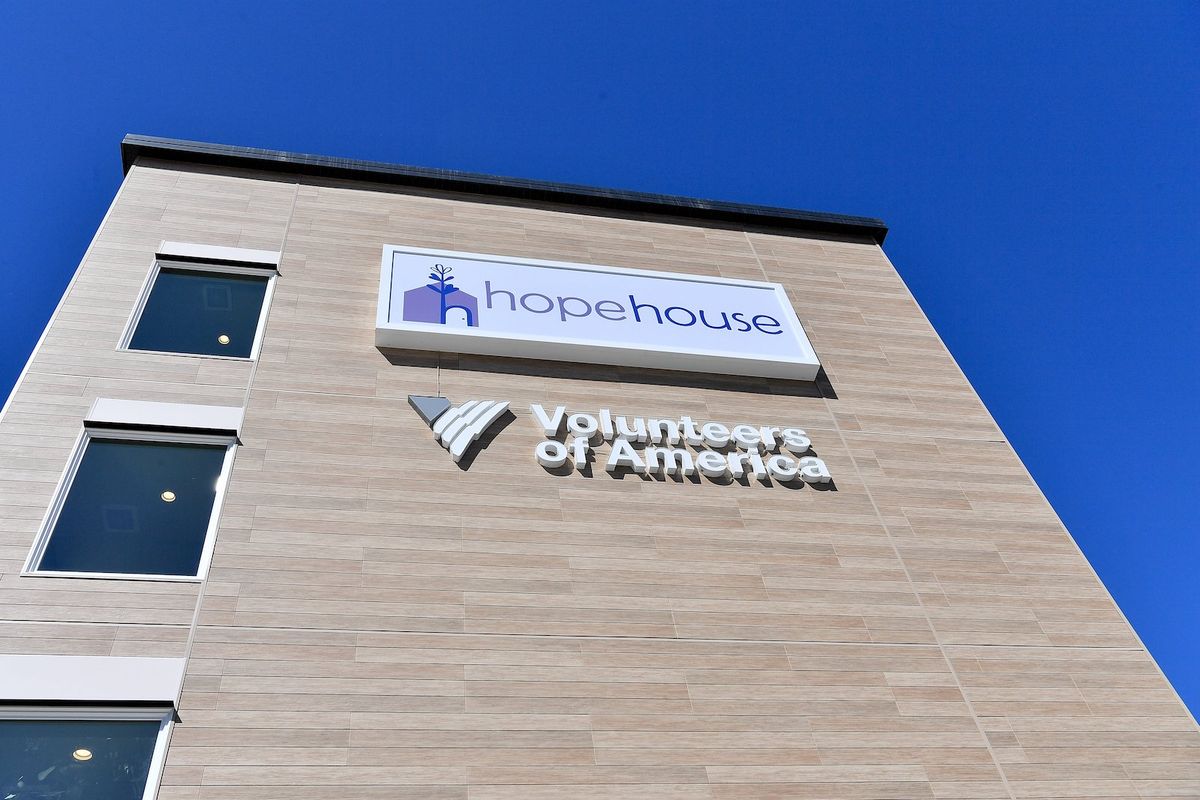Hope House homeless shelter threatens closure amid financial stress; Spokane leaders pledge support

Less than a year after it opened a sparkling new building downtown, the Hope House women’s shelter warned it will shut down next year if it does not receive funding from the city and county of Spokane.
Local officials quickly voiced interest in finding money to support the shelter on Tuesday and stave off disaster.
Volunteers of America, the nonprofit that operates the shelter, told elected officials that it faces a budget gap and will be forced to issue six-week layoff notices to its employees. Without financial support, the emergency shelter will close in February.
“Since I sent that letter to the electeds, I am pleasantly surprised that they all responded incredibly quickly and we’ve got some meetings planned right now between the county and also the city to figure out how to close that gap and create a long-term funding strategy,” Fawn Schott, president and CEO of Volunteers of America of Eastern Washington and Northern Idaho, told The Spokesman-Review.
Schott wrote in a letter to elected leaders on Monday that “at the time of Hope House development, VOA was assured that the operations funding would be provided if we made the capital investment.”
The closure of Hope House would roil Spokane’s already thinly stretched network of shelters for the homeless.
Hope House is the only emergency shelter in Spokane reserved specifically for women regardless of their sobriety, and is often a haven for those escaping domestic violence.
The shelter was located at 111 W 3rd Ave. for about 20 years before the new facility, which complements emergency shelter space with permanent supportive housing apartments on the floors above, opened earlier this year just down the street.
The $14 million new building expanded the emergency shelter capacity from 36 to 80 people. Since the new shelter opened in April, it has served more than 200 women and placed dozens in permanent housing.
But the nonprofit is predicting operating losses of $757,000 in 2022 and $1.2 million in 2023, according to Schott’s letter.
“That’s a priority and we’ve been working with Fawn at Hope House for several weeks to find the funding that she needs for next year, and we are confident that we will find that funding,” Spokane Mayor Nadine Woodward told The Spokesman-Review.
Spokane County CEO Scott Simmons said County Commissioners helped Volunteers of America with last-minute funding last year and would discuss it again this year. The county is trying to “help fill some gaps where we can,” Simmons said.
Schott said the community needs to have a discussion about how homeless services are funded. Both local governments and the nonprofit have been reliant on year-by-year funding sources, such as grants, she said. That dynamic can force nonprofits to spend time trying to fundraise instead of focusing on providing services.
“Do we believe in this enough to invest (in ensuring) that a person has a place to go to take the first step forward, or do we want people to just sleep under bridges and on our sidewalks?” Schott asked. “Those are our choices as a community, and if we don’t make the choice, it’s going to be made for us and people are going to be sleeping on our sidewalks and under our bridges.”